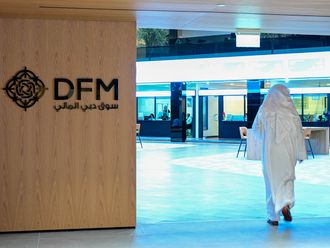The UAE leads the Gulf countries in numerous global indices related to economic performance, a clear reflection of the persistence with which the country seeks to stay ahead via steady investments and constant enhancement of the way things are done.
The UAE’s soft power — such as in the aviation sector — is adding to the country’s enviable list of accomplishments. Emirates airline is the largest operator of both A380 superjumbo and Boeing’s 777. Recently, it announced plans for a third daily service to Manchester, using a A380. It means all flights to the city will be on a A380 from January next.
This column looks into three indexes released so far this year. The UAE managed to enhance its rankings in the Global Innovation Index (GII), moving up six notches to the 41st rank. This is the best achievement among Arab countries, and also puts it ahead of the likes of Turkey and Russia.
The GII is published by Cornell University, Insead and the World Intellectual Property Organisation in partnership with other knowledge partners such as the Confederation of Indian Industry. The index gives rankings based on 82 sub-indices, with particular emphasis on research and development. The indicators entail university rankings, scientific output and patents.
Other Gulf countries have done fairly well in the GII report, as evidenced by the 49th and 50th worldwide rankings for Saudi Arabia and Qatar. Bahrain, Kuwait and Oman are ranked 57, 67 and 73 among some 128 nations reviewed. Clearly, Kuwait and Oman need to consider introducing successful innovation strategies.
The 2016 version of Global Retail Development Index (GRDI) confirms the UAE’s role among 30 emerging economies in retail activity. The UAE is ranked seventh in the index, followed by Saudi Arabia.
The index assigns scores on the basis of performance on four variables, namely market attractiveness, country risk, market saturation and time pressure. The market attractiveness variable primarily focuses on retail per capita and includes population plus business efficiency.
Furthermore, Dubai and Abu Dhabi outperform other Arab cities in the 2016 version of Quality of Living Rankings; the report ranks 230 cities worldwide, with Dubai emerging at 75th. For its part, Abu Dhabi is ranked 81st. In fact, of all Arab cities, only UAE’s are ranked among the top 100. In fact, Dubai and Abu Dhabi enjoy rankings ahead of the likes of Kuala Lumpur, Buenos Aires, Brasilia, Johannesburg, and Shanghai.
The 2016 survey covered more than 440 cities, ranked on the basis of 39 factors grouped in 10 categories. These include political stability, crime, law enforcement, and media censorship as well as medical services. Other variables cover currency exchange and banking services.
The challenge for the UAE concerns staying ahead of regional and international players. One such area is putting funds in R&D.
The Expo 2020 provides opportunities for further enhancement of ratings across the board. It has emerged that thousands of affordable homes would be built next to the Dubai Expo 2020 site. These houses could go on sale as early as October.
Certainly, such initiatives improve the chances for better performance in comparative indexes in the age of globalisation.
The writer is a Member of Parliament in Bahrain.











